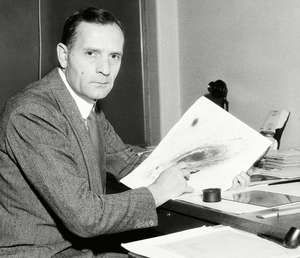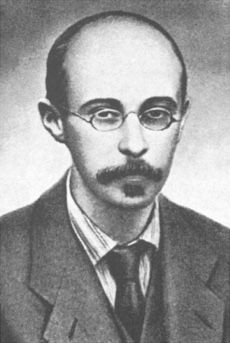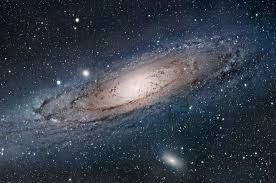Chapter 02: Is The Universe Really Expanding?
May 12, 2019 • 14 views
The universe doesn't allow perfection.
~Stephen Hawking
Our solar system is a part of a vast collection of stars known as the Milky Way galaxy. For a long time people thought that this was the whole universe. Later it was discovered that our galaxy is a part of million other galaxies that make up our Universe. We can determine the distance of the stars by observing their change in the positions relative to Earth. But the other galaxies are so far away that they appear fixed. Hence there was no direct method to calculate the distance of those galaxies.

Edwin Hubble
Then, a scientist named Edwin Hubble proposed a method to calculate the distance of these galaxies by using the relation of luminosity and distance. He successfully worked out the the distances of nine different galaxies.
Stars appear to be pinpoints of light because they are very far away from earth. There’s no way we candetermine their size and shape using traditional methods. But Newton discovered that if light passes though a prism, it breaks up into its component colors, known as spectrum. Different stars have different spectra but the relative brightness of the different colors are always same as that of an object that is glowing red hot. This means that we can tell a star’s temperature by observing its spectrum of light.
It was also observed that, the farther a galaxy was, the farther it was moving away. And that meant, the Universe couldn’t have been static, but in fact expanding. Newton and others should have realised this before, since a static universe would soon collapse under the influence of it’s gravitational forces. Even when Einstein formulated the General Theory of Relativity, he was sure that the Universe was static. He even modified his theory to make this possible. But general relativity was pointing to a non static universe which was actually true.
At that time, only one person was willing to explain a non static universe using General Relativity. His name was Alexander Friedmann. He made two very simple assumptions about the universe: that the universe looks identical in whichever direction we look, and that this would be also true if we were observing the universe from anywhere else. A lucky accident in 1965 uncovered the fact that Friedmann’s assumption was in fact remarkably an accurate description of our universe.

Alexandar Friedmann
A remarkable feature of the Friedmann’s model of the universe is that the universe is not infinite in space, but neither does space have any boundary. Space must be bent round onto itself like Earth due to gravity. If one keep travelling in in a certain direction on Earth, one comes up at the same point where he started. Similarly in space, if you keep travelling, you’ll end up where you started.
The fourth dimension- Time, is also finite in extent. It is possible for space and time to be both finite without any edges or boundaries.
The present evidence, therefore, suggests that the universe will probably expand forever.

The Milky Way Galaxy
